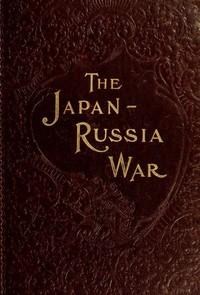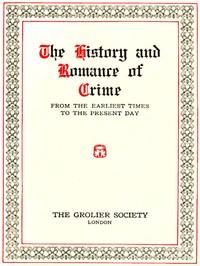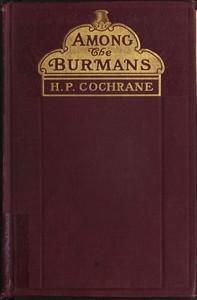Read this ebook for free! No credit card needed, absolutely nothing to pay.
Words: 129664 in 28 pages
This is an ebook sharing website. You can read the uploaded ebooks for free here. No credit cards needed, nothing to pay. If you want to own a digital copy of the ebook, or want to read offline with your favorite ebook-reader, then you can choose to buy and download the ebook.


: The Japan-Russia War: An Illustrated History of the War in the Far East by Tyler Sydney - Russo-Japanese War 1904-1905
same time he stipulated that the Korean Government should not alienate to any other Power the island of Kojedo, which lies just opposite to Masampo. Japan successfully resisted this bold stroke of policy; and matters were in this position when the Boxer rising gave Russia a supreme opportunity. Her troops in Manchuria were attacked by the rebels, and she at once hurried in reinforcements and seized the whole country. Resistance to her arms was put down with relentless vigor--with a vigor, indeed, far transcending the necessities of the case, and the Blagovestchensk massacres, in which thousands of unarmed Chinamen were offered up as a sacrifice to the offended majesty of Russia, will long be a stain upon the escutcheon of the Imperial Prophet of Peace. In the drastic process of absorption which was now adopted, the treaty port of Niuchwang was naturally included, and the interests of other Powers there became of very small account indeed.
It was evident that the Manchurian question had now assumed a more serious form. Of course the Czar's Government was profuse in its explanations. No permanent territorial advantage was being sought, we were told; as soon as lasting order had been established in Manchuria, and indispensable measures taken for the protection of the railway Russia would not fail to recall her troops from the province; above all "the interests of foreign Powers and of international companies at the port of Niuchwang must remain inviolate." The restoration of lasting order, however, appeared to be a very tedious process. More and more troops were drafted into the province and on the naval side also preparations were made for an imposing demonstration.
The position of affairs was now profoundly altered by the conclusion of the Anglo-Japanese Alliance. This important Treaty gave Japan the strength and the encouragement ultimately to intervene on her own account and endeavor to curb the restless ambitions of Russia. Russia gave a definite pledge that her troops would be withdrawn from Manchuria by instalments on the expiration of a certain period. That period expired on October 8th, 1903, but the pledge was never redeemed. A show of evacuation was made in 1902, but the troops returned, and at the end of October of 1903 Mukden was re-occupied in force. Never during the whole period did Russia lose her grip upon Niuchwang.
Notwithstanding the conclusion of the Anglo-Japanese Treaty of Alliance in the beginning of 1902, Japan waited for eighteen months before entering into the diplomatic lists alone against Russia. But at last, in August of 1903, this course was rendered imperative upon her, not only by the failure of the Czar's Government to carry out their engagements in regard to Manchuria, but by their aggressive policy in Korea. M. Pavloff, rebuffed at Masampo in 1900, had turned his energies in another direction. He secured for his countrymen valuable mining rights in Northern Korea, and Russians then began to cross the Yalu River and ultimately occupied Yongampo, a town of some importance on the southern bank. Not content with railway enterprises, they even started to construct fortifications. The Japanese, of course, interposed energetically and succeeded in modifying the Russian activity; but it now became apparent that, unless some binding arrangement could be arrived at, Korea was destined to share the fate of Manchuria.
Representations were therefore made at St. Petersburg calling for a revision of the Treaties of 1896 and 1898, and a friendly settlement of the respective rights of the two Powers. The story of the negotiations which ensued is a simple one. It is a story of courteous and moderate representation on the one side, and of studied delay and contemptuous refusals on the other. The negotiations on behalf of Russia were in the hands of Admiral Alexeieff, now elevated to the position of Viceroy of the East, and it is said to be mainly due to his influence that his Government adopted such an unbending attitude. Japan asked for a repetition by Russia of the pledges she had given that she would recognize the integrity and independence of China and Korea; and, further, that she should recognize the preponderance of Japanese political and commercial interests in Korea. Russia haughtily refused to give Japan any pledge as to the integrity of China, and contended that her position in Manchuria was regulated by treaties with China in which Japan had no right to interfere. As to Korea, she proposed the establishment of a neutral zone in the north of the province, leaving the south of the country to become a sphere of commercial influence for Japan, but she expressly stipulated that the latter Power should make no use of any portion of Korean territory for strategic purposes. The proposal was so absurdly one-sided that Japan returned to the charge with the suggestion that a neutral zone should be established both on the Manchurian and the Korean sides of the frontier. She also reiterated her request for an agreement as to the maintenance of the territorial integrity of Manchuria and China.
Russia contemptuously delayed reply to these representations in spite of the courteous requests of the Japanese Government. In the meanwhile she kept augmenting her forces in the Far East till the situation became impossible of continuance.
Every day that passed threatened to transfer the balance of naval power in favor of the European Power, for a powerful fleet was being hurried out to the Far East, and the badly-finished warships in Port Arthur were being patched up by an army of mechanicians. Mr. Kurino, who conducted the negotiations at St. Petersburg, pressed for an answer, but was put off with promises no less than six times. Such discourtesy could only have one result. The dignity of Japan could brook no further insolence, and the Czar and his Ministers were politely informed that under such circumstances negotiations were useless. It was in vain that hurried telegrams were dispatched to Admiral Alexeieff to present a reply to the justly incensed Cabinet at Tokio. The die had been cast, and the big bully of the North, who had for so long baited the plucky little Japanese, realized at last that threats and bluff no longer were of any avail, and that the matter was now referred to the God of Battles.
On February 7th, 1904, Japan formally broke off the negotiations and withdrew her Minister from St. Petersburg. The war cloud had burst.
Russia Bluffing--Japan's Navy--"Nisshin" and "Kasaga"--New and Efficient--Japan's Dockyards--Opposing Figures--Russian Navy--Belated Help--Japan's Superiority--Russian Harbor--Japan on Land--Russia's Army--East of Baikal--Weak Communications--Port Arthur--Korea as Base--Command of the Sea--The First Blow--World-Wide Interest--A Graphic Account--Russian Losses--The Fight of February 9th--Russian Bravery--Japanese Modesty--Damage Understated--Only One Repairing Dock--Alexeieff's Reason for Casualties--The Fight at Chemulpo--The First Shot--Japanese Disembarkation--A Brave Russian Captain--A Target for Japanese Gunners--The Plucky "Korietz"--Wounding and Burning--Japan's Handicap.
The growing menace of the situation in the Far East had been for months attracting the anxious attention of the whole world, and at the beginning of 1904 it became evident that war was inevitable, unless one or other of the disputants was prepared to make a complete surrender of its essential claims. The unlikelihood of this remote possibility being fulfilled was confirmed by the steady and, on the Russian side at least, the feverish preparations for hostilities which were carried on as an accompaniment to the repeated protestations of pacific intentions by the Czar's Government and its diplomatic agents abroad. Those who still believed in peace were sustained by the conviction that one of the parties to the dispute was bluffing. Sympathizers with Russia pointed to the tremendous power and inexhaustible resources of the Northern Empire, and asked whether it were possible that a young and small country like Japan should dare to try conclusions with so gigantic an antagonist. On the other hand, the friends of Japan emphasized the weakness of the Russian position in the Far East and the well-known financial embarrassments beneath which her Exchequer was laboring. It is, therefore, apropos to survey at this point the military and strategic position in the Far East which revealed itself immediately before the final rupture of diplomatic negotiations and the beginning of active hostilities.
In any conflict between Russia and Japan it was obvious that the first struggle must be for the mastery of the sea, and it is, therefore, interesting to consider primarily the relative naval strength of the two Powers in Far Eastern waters. The navy of Japan has been built, not only on English models, but for the most part in English yards; and since the Chino-Japanese War it has been increased by a number of vessels of the latest and most powerful type. The result is that the most formidable feature of Japan's naval strength is its complete homogeneity. The tabular statement on page 41, gives the names and principal characteristics of what may be called Japan's first fighting line at sea.
JAPAN'S UP-TO-DATE NAVY.
Free books android app tbrJar TBR JAR Read Free books online gutenberg
More posts by @FreeBooks

: German and Austrian Prisons Prisons of Prussia Bavaria Saxony and Austria-Hungary; the Fortresses of Magdeburg and Spielberg by Griffiths Arthur - Prisons Germany History; Prisons Austria History


: Rubáiyát of a Motor Car by Wells Carolyn Strothmann F Frederick Illustrator - Omar Khayyam Parodies imitations etc.; Humorous poetry; Automobiles Poetry






